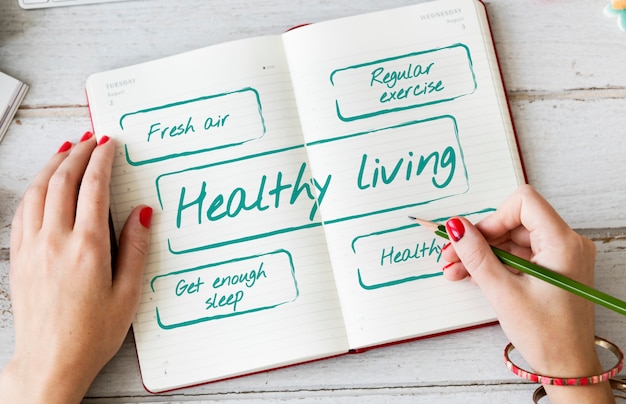
Want to live a healthier life? It can start by eating right. A nutritious diet can help prevent common diseases like heart disease and diabetes, and improve the condition of those already managing these illnesses. What does “healthy eating” mean? It varies from person to person, but the main goal is to regularly eat food and drinks with vital nutrients our bodies need. So, how can you start eating healthier? Let’s check out some expert advice.
Being healthy comes from eating food full of important vitamins and minerals, and watching how much fat you eat. Eating high-fiber foods is a smart choice for many people, and aiming for five daily servings of fruits and veggies can benefit everyone. Good nutrition also means being mindful of how much you’re eating to avoid taking in more calories than your body needs.
Balancing exercise with nutrition is key for great health. However, don’t run after trendy diets that give fast results but are difficult to maintain and could harm your health. Instead, make realistic and informed choices like understanding the calories in foods you eat regularly.
Wondering if it’s time for a diet change? Ask yourself the following questions. If you answer “yes” to any of them, it might be time to talk to a healthcare professional:
– Has your doctor warned you about a medical condition or risk, like high blood pressure or high cholesterol?
– Did your doctor say better nutrition might improve your health?
– Do diseases like diabetes, cancer, heart disease or osteoporosis run in your family?
– Have you gained weight over time or are currently overweight?
– Are you unsure of what foods you should be eating or if you should take dietary supplements?
– Do you think you could benefit from a nutritionist’s advice?
Switching to a healthier diet can be hard, but it’s doable with small, regular changes. If your health depends on your diet, like if you have kidney disease, lactose intolerance or celiac disease, these changes are extra important. Here are some simple ways to improve your health:
– Review your diet: Do you eat 4-5 servings of fruits and vegetables every day? Are you getting enough calcium? Do whole grains and high-fiber foods make up part of your diet? If not, try to include more of them in your meals.
– Keep track of what you eat and drink every day: A food diary can help you see what part of your diet might need some changes.
– Think about getting help from a dietitian: They can give you personal dietary advice, especially if you have specific health concerns.
Another universal good practice for healthy nutrition is to cut down unhealthy fats. If you’re used to fatty foods, consider doing the following things:
– Cook meat by baking, grilling or broiling, instead of frying.
– Use less additional fats like butter on bread or store-bought salad dressings.
– Eat more fruits and vegetables.
– Check nutrition labels on food before you buy.
– Be aware of hidden fats and large portions when eating out.
It’s also really important to stay properly hydrated. Water or low-calorie drinks are the best way to go. Sugary drinks can add unneeded sugar and calories to your diet.
Final key points to remember:
– There’s isn’t a magic trick to better nutrition. A diverse diet with whole foods is the most beneficial.
– If a diet program or product seems too good to be true, it probably is. Many people in advertisements get paid to endorse products and often don’t mention potential negative consequences.
– You are aiming to set achievable dietary goals. Even little changes in your diet can be a big step in your health journey. It’s worth the effort.
The author of this advice is Anamika Singh, a content writer at Rotimatic. When she’s not writing or looking after her family, she loves cooking and getting lost in books. Her practical suggestions and actionable tips make her a great resource for her readers.
Tags: Better Health, Expert Advice, Healthy Eating









